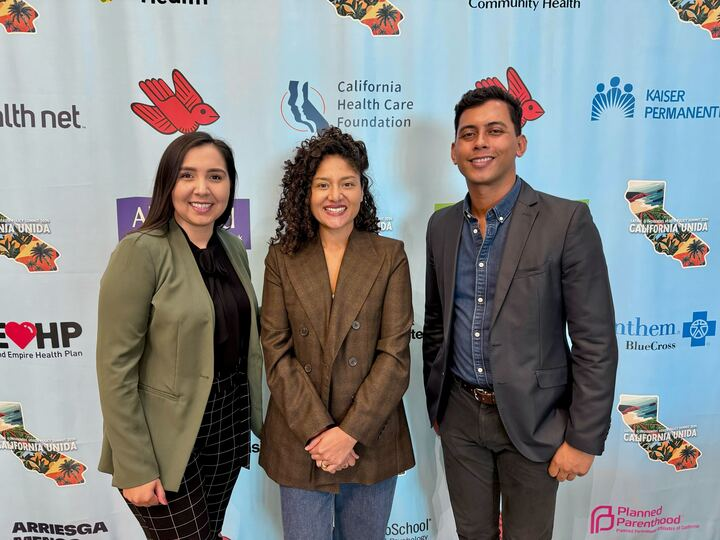LCHC Latine and Indigenous Health Policy Summit

On October 2nd, 2024, the Latino Coalition for a Healthy California (LCHC) hosted its yearly policy summit in downtown Los Angeles, themed “California Unida for Health Equity.” The event, sponsored by UCLA LPPI, kicked off with opening remarks from Dr. Seciah Aquino, executive director of LCHC, who highlighted the importance of activating action that centers health justice for Latino and Indigenous communities across California. During her remarks, Dr. Aquino thanked the attendees who worked to ensure the recent passage of SB 1016, a bill that will allow California to collect greater disaggregated health data around the Latine and Indigenous communities when accessing services.
The Summit’s keynote speaker, Odilia Romero, co-founder and executive director of Comunidades Indígenas en Liderazgo (CIELO), addressed language diversity amongst California’s Indigenous communities and the importance of continuing to advocate for greater representation and access in the healthcare system for all Californians.
The program provided community advocates and stakeholders an opportunity to learn more about the complexities of navigating the healthcare system, the importance of language accessibility to reach health equity and the need to collaborate and mobilize communities of color to overcome the challenges in obtaining health justice for all. Through panel conversations, attendees shared their stories and the challenges communities face in accessing equitable health care.
In the first panel of the day, “California’s Medi-Cal Journey: The Road to Advancing and Maintaining Health Equity,” Michelle Baass, director of the California Department of Health Care Services (DHCS), discussed the importance of having a community-based approach when conducting outreach efforts for people to learn more about Medi-Cal benefits and discussed opportunities for community members to become more involved through the Coverage Ambassadors Program. Fortina Hernandez, a Los Angeles County promotora agreed with Baass on the need for a community-based approach to conduct outreach and highlighted the fear undocumented people face when interfacing with government entities.








